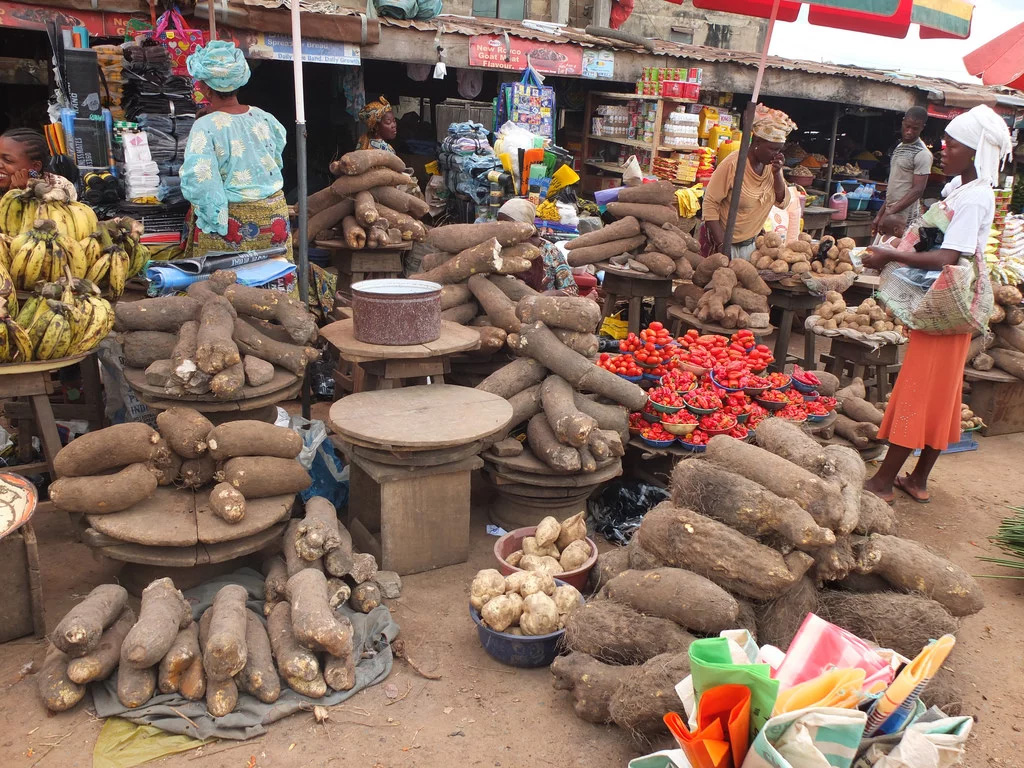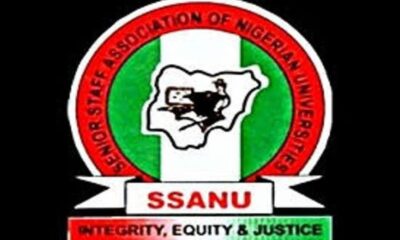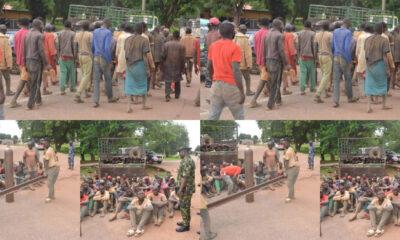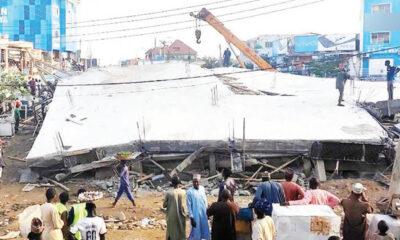News
Residents groan over soaring prices of foodstuff in Kaduna, Kano, others

Residents groan over soaring prices of foodstuff in Kaduna, Kano, others
In tune with the extant global trends, Nigeria is experiencing an unprecedented increase in the cost of basic food items.
Findings by the News Agency of Nigeria Correspondents in Kaduna, Kano and Katsina States have shown that Nigeria was not an exception.
For instance, a check conducted by NAN in Kaduna revealed that the surge was particularly notable in the prices of rice, bread, sugar, garri, beef and eggs, amongst others, which are staples in most homes.
Also, the rising cost has had an impact in the living standard of the residents as the majority of the homes now find it formidably challenging to afford three square meals.
NAN also gathered from the Abubakar Gumi Central market and other markets within Kaduna city that the price of Mama Gold rice had risen to about N75,500 per bag, while a 50kg Stallion, Optimum brands now sell from N77,000 to N80,000.
Also, a loaf of bread was now being sold between N1,000 and N2,500 depending on the brand and quality.
A measure (mudu) of ‘white garri’ that used to sell for N400 was now sold for between N1200. while a measure of ‘yellow garri’ sold for N600 now goes for between N1300 and N1,500.
Similarly, a crate of egg that was selling for N3000 hitherto, now sells for between N4,000 and N4,500 depending on the size.
Also, a kilogram of meat (beef) formerly sold for N3,000 before was now being sold at N5,000.
Meanwhile, farmers in parts of the state have attributed the high costs of foodstuffs to the fuel subsidy removal.
Some of the farmers who spoke to NAN in separate interviews in Kafanchan blamed the hike in the prices of foodstuffs on the high cost of transportation, occasioned by the removal of fuel subsidy by the Federal Government.
Ishaya Chingali, a large-scale farmer, said inflation had also led to the high cost of farm inputs like fertilizers and herbicides.
“If they can take care of the cost of transportation, the high cost of food stuff will be addressed by 50 percent,” he stated.
On his part, Kure Kade, President, Organic Ginger Farmers Association, said the only way out was for the government to subsidize farm inputs.
He said Nigeria was capable of feeding itself without necessarily importing any food stuff.
READ ALSO:
- Student jailed 21 years for attempting to sexually assault minor
- Shehu Sani warns Tinubu not to repeat Buhari’s mistakes
- Kuwait flight hostages sue British Airways, UK govt
In a related development, the Kaduna State Government said it had distributed farm inputs, farm implements as well as agro-processing equipment to 40,000 smallholder farmers to boost food production.
Murtala Dabo, the Commissioner, Ministry for Agriculture, made this known in an interview with the News Agency of Nigeria (NAN) in Kaduna.
The items were distributed under the government’s ‘A Koma Gona’ (Back to Farm) initiative.
According to him, the programme targets beneficiaries in the 23 local government areas of the state.
He said the state was the largest producer of ginger, maize, as well as tomatoes in the country, lamenting that the farmers suffered post-harvest losses such as tomatoes and ginger.
Dabo assured that the state government would revisit the now stalled tomato processing plant in Ikara to address the losses suffered by tomato farmers in the area and other surrounding local governments.
He said, “Agriculture remains the backbone of the economy, providing employment and sustaining livelihoods.
The state is blessed with huge agricultural potential
“Smallholder farmers and small-scale agro-processors have been facing difficulties due to the current economic challenges in the country.
”This category of farmers is very critical in our quest to ensure food security.
“It is for this reason that the government has come up with the ‘Tallafin Noma – A Koma Noma’ as part of our Sustainable Livelihoods through Social Interventions and Economic Empowerment Initiative.
“Under this “A Koma Gona” (Get Back to Farm) component, the Ministry for Agriculture was mandated to target a minimum of 40,000 smallholder farmers and farmers’ cooperatives across the 23 LGAs.”
According to Dabo, the ‘Tallafin Noma programme’ includes the distribution of inputs for crop and livestock production, crop production, improved maize seeds, agrochemicals, NPK and Urea fertilizers.
“For livestock production (poultry), 30 day-old chicks with four bags of feed and drugs are distributed, while 50 jumbo juveniles (catfish) with two bags of feed and drugs are distributed for fisheries.
“To boost micro-mechanisation of the agriculture sector in the state, power tillers and accessories were distributed to farmer cooperative groups.
“This is a crucial step towards increasing production and productivity in our farms,”he added.
The commissioner added that ‘Knapsack’ sprayers with Personal Protection Equipment (PPE) were also given to the farmers for agrochemical and liquid fertilizer application on their farms.
“For the agro-processors, vegetable grinders are distributed to individuals, while hammer mills, haulers and threshers are distributed to cooperative groups as group assets.
“These processing machines would add value to our agricultural produce and improve the livelihoods of individuals and groups involved in agro-processing activities,”Dabo said.
To reduce herder-farmer conflicts in the state, he said the state government has commenced the Livestock Development Project (L-PRES).
He said bringing the project to the state had also helped to tackle the frequent clashes between farmers and herdsmen.
Dabo said that the project would focus on the component of conflict management aimed at finding a lasting solution to the problem.
Meanwhile, a farmer in Kaduna State has appealed to the government at all levels to enhance agricultural mechanization.
He also urged them to replace the animal-drawn plough system for land preparation and other agricultural production processes to boost food security and wealth generation.
READ ALSO:
- BREAKING: Pilot survives as NAF helicopter crashes in Kaduna
- UK cab driver confesses still getting paid in Nigeria as civil servant
- Police rescue 2 kidnapped victims in Abuja
Ahmed Abubakar, a member of the Albarka-Shika Farmers Cooperative Society, made the appeal in an interview with the News Agency of Nigeria (NAN) in Zaria.
He said, “Farming is a business; the government at sub-national levels should woo and entice youths by providing simple labour saving devices in farming to strengthen production.
“These tools and devices are not affordable to many youths and small-scale farmers; we are in the 21st century,so, it is high time to do away with cutlasses and hoes and embrace full-scale mechanized agriculture.
“Bandits and other criminal elements would not allow the small -scale farmers to keep cattle for traditional plough.
“If the farmers have these machines at their homes, it will not be easily stolen like cattle,’’ he said.
Mr Abubakar said the initial intervention by the Federal Government for wheat farmers under dry season farming had gladdened the hearts of the farmers across the state.
Mr Abubakar said no fewer than 10,000 farmers received improved wheat seed varieties, herbicides and fertilizer and other inputs for cultivation of a one hectare field at 50 per cent discount.
He, however, said that the gesture had greatly increased the production of wheat in Kaduna State during the last season.
The farmer added that the intervention, which assisted many peasant farmers in the state, had also rekindled their hope as the Federal Government was set to replicate the support to additional 40,000 maize and rice farmers.
He said the 40, 000 farmers who were registered by the Federal Government through the Kaduna State Agricultural Development Agency (KADA) for the dry season farming of rice and maize did not receive the inputs.
However, Abubakar said there were insinuations that the cohorts captured for dry season intervention would receive the inputs for wet season farming alongside other commodity growers; saying, ” this also has not been materialized.
“It is an established fact that the early distribution of inputs to farmers boosts production and increases wealth generation to farmers.
“The major problems are insecurity and high cost of inputs,’’ Abubakar said.
He lamented the delay in the distribution of the fertilizer donated by the Central Bank of Nigeria to the Federal Ministry of Agriculture and Food Security.
According to him, the delay in the distribution of the inputs by the government and high inflation rate in the country had increased the cost of fertilizer and other inputs, which have a “devastating effect on food security.”
While speaking on the policy of the Federal Government on the all-year round food production, Abubakar lamented, ” Beside the pronouncement, we are yet to see any tangible effort of the government on this.”
He added that dry season farming was done with water from the stream and dams.
Abubakar said, “But the available dams were not desilted, new ones were not created while modern equipment and other simple labour saving devices were also not put in place.”
Abubakar, therefore, urged the governments at sub-national level to increase efforts on providing improved quality seeds to the farmers, which is the bedrock of sustainable food production.
He said the Institute for Agricultural Research used to provide one of the cheapest high quality seeds to the farmers, decrying, ” Now the prices of such improved seeds have skyrocketed.
“ In private seed companies, the cost of improved maize seed per hectare ranges between N64, 000 to N120, 000; hence the need for government’s intervention on this and other inputs.
“Government should enhance the reintroduced GES and totally abolish the anchor borrowers’ scheme,’’ he said.
Corroborating, Nuhu Aminu, Chairman, All Farmers Association of Nigeria, AFAN, Kaduna State Chapter lamented that banditry and kidnapping were major impediments to food security in the state.
He said the recent abduction of Ashiru Sherehu, Village Head, Tunburku, Giwa LGA, Kaduna State at his farm on Saturday indicated the impact of worsening insecurity to agriculture and food security.
He said that sustainable agricultural growth and development can only be achieved in an environment that was secure and peaceful.
According to him, insecurity in northern parts of Kaduna has threatened food production in the state as most of the large-scale farmers have abandoned their farms in areas such as Birnin Gwari, Giwa, and Igabi LGAs.
“The few that sustain farming now scavenged on little small-scale farms around Soba, Kubau, Ikara , Makarfi and Kudan LGAs,”he added.
Aminu commended the Federal Government for subsidising inputs for dry season farming through the National Agricultural Growth Scheme and Agro Pocket (NAGS –AP) initiative.
He, however, urged the government to sustain and upscale the initiative to strengthen food security and job creation.
According to him, the NAGS-AP was one of the best government initiatives that target smallholder farmers, thereby improving food production.
Nuhu Aminu, Chairman, All Farmers Association of Nigeria (AFAN)Kaduna State chapter, attributed the high cost of food items in the state to inadequate and late supply of farm inputs.
Aminu made the assertion during an interview with the News Agency of Nigeria (NAN) in Kaduna.
He explained that the farmers were not able to start farming early even with the rains due to the high cost of fertilizer and the late distribution of seedlings and pesticides among others.
“This led to poor yields causing the peasant farmers to sell their surplus produce to middlemen who now determine the prices in markets.
“But, with the Federal Government’s initiative to distribute farm inputs to the farmers this year using their mobile phones, we are hopeful that there will be bountiful harvests, ” he said.
Mr Aminu said the Federal Government has commenced the distribution of farm inputs to the farmers in some local governments of the state, adding that more farmers would be captured in the programme.
Aminu explained that the items included fertilizer, pesticides and seedlings which would be given at subsidized prices to the farmers, with the Federal Government paying half the price of the items.
” This will help bring down the prices of food items, “he said.
In a bid to secure the farmers and the farms, the Police Command in Kaduna State Government has donated 100 motorcycles to it.
The command also said it has has p in place elaborate plans to secure farmlands for the farmers to farm without fearing any security threats.
The command’s Public Relations Officer, Mansir Hassan, told the News Agency of Nigeria (NAN), that the gesture by Gov. Uba Sani was aimed at further protecting farmers across the state.
According to Hassan, the motorcycles had since been distributed to the Divisional Police Officers in the affected areas where farmers are no longer apprehensive to go to the farms.
He said the essence was to make sure that the farmers were protected in their farmlands when farming in the insecurity-prone areas of the state.
Hassan said the plain-clothes security personnel and vigilance services were part of the plan.
He said that the initiative would boost the farmers’ morale to troop to the farms without harbouring any fear.
He said that the Commissioner of Police,Mr Ali Dabigi, has a lot of plans with the support of the state government, saying that they would yield positive results.
In Kano State, some agriculture experts have advised the Federal Government to engage in discussions with farm produce marketers and large-scale farmers to curb the soaring food prices in the country.
Some of the experts spoke with the News Agency of Nigeria(NAN) in Kano on measures to stem the tide of skyrocketing food prices and roof-top inflation.
Alhaji Nasiru Musa, the Managing Director of ANS farms limited, said that engaging legitimate farm-produce marketers and large-scale farmers was the simple and feasible solution to the soaring food prices.
According to him, it is very difficult to differentiate between foodstuff hoarders and large-scale farmers and legitimate farm-produce marketers who have large warehouses where they keep their commodities before distributing them to other parts of the country.
He advised the government at all levels to purchase the foodstuffs in large quantities directly from the large-scale farmers and resell them to the masses at affordable rates throughout all the local government areas.
“I appeal to the government also to discourage bulk purchases by individuals or groups, by doing this, the prices of food can be controlled to some extent and food will reach the poor,” he said.
Abubakar Sani, a retired director, state ministry of Agriculture, who also called on federal government to sit with large-scale farmers particularly in the North, said that farm products were being exported to neighbouring African countries due to the weak value of the Naira
He further urged federal and state governments to support farmers with solar-powered pumps, fertilisers, seeds, extension services, pesticides, among others.
Mahmud Garba, a lecturer, explained that rising cost of living and escalating food prices have been the main challenge that the majority of Nigerians were battling with at the moment.
According to him, the rise in the cost of staple food and other products has affected the purchasing power of many Nigerians, as it is now very difficult for the majority of households to afford daily meals.
Sanusi Bature, Director General Media to the Kano State Governor, said that the state governor had approved the procurement of fertiliser, valued at over N5bn, to show the state’s commitment to food sufficiency, through agricultural transformation.
He said that the move was in fulfillment of Yusuf’s campaign promise to support smallholder farmers, especially in rural areas, toward a high yield of crops in the 2024 rainy season.
“The fertiliser approved for purchase will complement those already produced by the state-owned Kano Agricultural Supply Company and would be made available to farmers at a subsidized price within the state.
“Gov. Yusuf had previously purchased grains, worth billions of naira and distributed them to the vulnerable people in the state, to cushion the economic hardship faced by a significant number of people in the state,” he said.
On economy,Abdulfatah Adewale, a financial expert also advised the Federal Government to explore the reduction of taxes and duties and support the consumption of locally produced goods and services to address the economic challenges facing Nigerians.
He urged the federal government to come up with fiscal policies like tax reduction to encourage companies to invest, expand and employ more workers.
Adewale also Advised the government to equally reduce the duties paid by importers on some goods, give incentives to consumers of locally produced products and pump in money into the system.
In Katsina, a cross section of the residents of Katsina metropolis expressed concern over the continued hike in the prices of foodstuffs and other goods in the state.
Speaking to the News Agency of Nigeria (NAN) in Katsina, the residents said the hike in prices of foodstuffs, coupled with other economic hardship has pushed many people into poverty and hunger.
Malam Ibrahim Isma’il, a civil servant, said before the current hardship, his salary can sustain him to another salary, but now it can not provide his family with food for two-weeks.
A trader, Bala Baba said, “To be honest with you, life is difficult for many of us, because business is no longer moving because of the economic hardship, and our businesses are collapsing.
During a visit to some of the markets in the city, NAN reports that the quantity of Maize (mudu) which was sold a few months ago at N1,200, is now N1,600.
The local rice sold at N3,600, is now N4,000, beans sold at N3,400 per measure, is now N4,800, while a measure of cereal sold at N1,600 is now N2,200.
Also at Chake market, a bag of maize is sold at N89,500, cereal at N86,000, millet N88,000, beans N165,000, Suyer beans N89,500, while a bag of local rice is N58,000.
Although some of the residents attributed the hardship to the current economic situation in the state, some said the insecurity also is contributing.
NAN recalls that recently, the Katsina State government in an effort to boost the agricultural sector, recruited 722 extension workers and provided them with motorcycles and other equipment.
During the event, Gov. Dikko Radda said, “Second way of fighting poverty is to improve productivity.
Agriculture is our major occupation, that’s why we created Katsina State Irrigation authority.
“The aim is to have all year-round irrigation farming in the state, that will reduce redundancy, and keep everybody busy.
He pointed out that to achieve or increase productivity , farmers have to be sensitised on farming as a business.
According to the governor, when he came to power, there were only 72 extension workers in the state.
“We gave each of them a motorcycle and other equipment to enable them move around to enlighten farmers on the way to improve their productivity.
“We also launched the sales of about 20,000 metric tons of fertilizer to farmers in the state at a very subsidised price.
“These are some of the things that we are putting in place to engage the farmers, the youths and the locals to be more productive, reduce the level of poverty and improve their livelihood.”
The governor also revealed that the state government, through the KT-CARES, has supported over 6,100 farmers in the state.
NAN also reports that recently, the state government in collaboration with an NGO, Mercy Corps embarked on herder-farmer conflict resolution, especially across some front-line areas.
The dialogue, organised through the Conflict Mitigation and Community Reconciliation in North-West Nigeria (CMCR-NW) project.
was aimed at promoting locally-driven peace initiatives through interest-based negotiation.
Speaking at the event, the state’s Commissioner for Agriculture and Livestock Development, Prof. Ahmed Bakori, said the dialogue was a necessary sequel to the prevalence of such conflicts during the rainy season.
“This situation poses a challenge to safe farming and grazing activities, and affects agricultural activities leading to minimal harvests and overall output.
“It then becomes imperative for stakeholders to brainstorm and design appropriate strategies to prevent and where possible mitigate tensions during the forthcoming farming season.
“With this development, farming activities across the front line areas will hold for this rainy season,” Bakori assured.
Residents groan over soaring prices of foodstuff in Kaduna, Kano, others
NAN
News
Reactions as Sanwo-Olu tells retirees not to gift churches, mosque their pensions

Reactions as Sanwo-Olu tells retirees not to gift churches, mosque their pensions
Reactions have trailed Lagos State Governor, Babajide Sanwo-Olu’s advice to retirees who got their contributory pension worth about N4.46b not to donate it to churches, mosques, or religious groups.
Speaking at the 105 batches of retirement bond certificate presentation ceremony to the 2000 retirees, Sanwo-Olu said they should use their pension to solve their family problems.
The governor said the payment of the pension was a testament to the unwavering commitment of the Lagos State government to its retirees.
“This is not meant to solve all family problems. It is about you, what you have earned and worked for.
“When they say they want to build a church or mosque and ask you to come out to pledge N3m. Don’t do that. God will give you the wisdom to act, Sanwo-Olu has done his part o,” Sanwo-Olu said.
Meanwhile, Sanwo-Olu comments have elicited missed reactions from X users.
@AA_Adelodun said: “I’m deeply impressed and I hope the aged pensioners listen to him and yield to that important advice. Cos those religious bigots out there are wicked ooo.”
READ ALSO:
- Nigerian Railway Corporation suspends Warri-Itakpe train after derailment
- Again, gunmen attack Benue communities, kill 6, raze houses
- EFCC nabs 3 fraudsters impersonating popular cleric on social media
@abdallahalghazy wrote: “Impressive. GOD bless you Mr. Governor.”
@roseokpete said: “God will bless this man @jidesanwoolu do you know how many states have failed or neglected to pay pension to workers after years of dedicated service? Some even d!3 without seeing a dime. Benue State @benuestategovt is one of such state..very lackadaisical”
@uchchukwukwunna12: “Why is the governor addressing the retired workers in Yoruba? Lagos is not yoruba state. Why trying to force yoruba on every nigerian in the state? If this is not provocative and act of treason, what then is it?”
@omoduduwa: “Gov Sanwo-Olu is leaving a great legacy in Lagos. These are efforts we only see near election time in this country and to think this is his second term.”
@agenigeriafound: “Kudos to @jidesanwoolu d first Governor that show deep empathy for older persons and advice them on Financial Abuse as they receive their pension. The era of we have not paid the living let alone the death is gone. You deserve an award from us for your priority for older persons.”
@i_jandor: “So, if a retiree sees their children in need of help, they should just look over… Hmmm. Sanwolu just dey play.”
@African_unifier: “They are speaking out now which not late , churches are legal building for scam operators called Pastors.”
@thatfancyguyy: “That’s for a fact. Retirees shouldn’t give their funds to their kids. For what na? Aside that, Gov Sanwo should keep his advice & focus his attention to the streams of sea that has entered into people’s homes in Lagos.”
Reactions as Sanwo-Olu tells retirees not to gift churches, mosque their pensions
News
Tinubu says Nigeria still generating 4.5GW of electricity shameful

Tinubu says Nigeria still generating 4.5GW of electricity shameful
President Bola Tinubu has expressed displeasure that Nigeria despite its size is still generating 4.5GW of electricity.
He underscored the need for innovative solutions to the country’s economic challenges, noting the importance of public-private partnerships in driving economic reforms.
According to him, ”We have the challenge of energy security in Nigeria. We need to work together to improve our oil and gas sector, and we must also increase electricity generation and distribution throughout the country.
”We are determined to do that with your cooperation, collaboration, and recommendations. As a nation, it is so shameful that we are still generating 4.5GW of electricity.
”We must increase our oil production to two (2) million barrels per day within the next few months and we are determined to remove all entry barriers to investments in the energy sector while enhancing competitiveness,” the President stated.
President Tinubu announced measures, which will run concurrently with the National Construction and Household Support Programme, to stabilize the economy, enhance job creation, and foster economic security.
READ ALSO:
- Davido: Sophia Momodu files 102-paragraph affidavit in child’s custody suit
- Pro-Fubara lawmakers vow to challenge appeal court verdict
- House of Reps summons Women Affairs minister over N1.5bn diversion
The measures under the Economic Stabilization Programme are energy security initiative which includes power, oil and gas.
This is aimed at increasing on-grid electricity to be delivered to homes and businesses from about 4.5 gigawatts to 6 gigawatts in six months; increase oil production to 2 million barrels per day within the next 12 months; and remove barriers to entry for investments into the sector to enhance competitiveness.
He said that the agriculture and food security under the Economic Stabilization Programme, is aimed at increasing staple crops grown by small-holder farmers from 127 million MT in 2023 to 135 million MT this year.
It is also to bolster production by partnering larger-scale commercial farmers; support qualified farmers with satellite imagery for land use planning, crop rotation, and monitoring of agricultural expansion.
The President further explained that the health and social welfare sector shall make essential medicines available at lower cost for 80-90 million Nigerians and expand healthcare insurance coverage for 1 million vulnerable people via a Vulnerable Group Fund in collaboration with state governments;
It will also redeploy 20,000 healthcare workers to provide services to 10-12 million patients in areas where they are most urgently needed; power up 4,800 primary healthcare centres (PHCs), second tier, and third tier hospitals using renewable energy sources.
On the fiscal measures, he said, “some of the interventions to improve access to finance for the housing sector, MSMEs, and the manufacturing sector are:
“Youth-owned enterprises: Support for new and existing youth-owned enterprises across all 36 states of the Federation, creating 7,400 MSMEs within the next 6-12 months;
READ ALSO:
- Lagos police engage kidnappers in shoot-out, kill nine suspects
- Police rescue five-year old chained for three days
- Police stop Lagos pregnant teenager from committing suicide
“MSME support: A six hundred and fifty billion naira (N650 billion) facility will provide lower-cost short-term facilities to youth-owned businesses, manufacturers and MSMEs across various industries; food processing, pharmaceutical, agriculture, and wholesale and retail trade. This financing will be based on their current and future receivables, company rating, and market demand for products;
“A Manufacturing Stabilization Fund will rejuvenate up to two hundred and fifty companies and deliver lower cost (9.0%-11.0%) long-term facilities to large, medium-scale, and light manufacturers that produce finished goods for domestic and export markets;
“Sub-national Matching Fund: A Grow Nigeria Development Fund consisting of a single-digit interest rate loan portfolio with the Bank of Industry and a matching fund agreement with sub-national governments to grow MSMEs;
“Expanding the Bank of Industry’s Rural Development Programme: A fund to support rural economies in developing 300 new MSMEs for each state, including the Federal Capital Territory (Abuja), resulting in 11,100 new rural-based MSMEs across the Federation;
“Mortgage Finance Acceleration Facility: A facility that delivers affordable housing for all segments impacted by the cost-of-living challenge. This will support the construction of an additional 25,000 housing units.
“These fiscal measures will improve access to finance for MSMEs and, in the process, create 4.7 million direct and indirect jobs over a six to 12-month period.”
Tinubu says Nigeria still generating 4.5GW of electricity shameful
News
Pro-Fubara lawmakers vow to challenge appeal court verdict

Pro-Fubara lawmakers vow to challenge appeal court verdict
The faction of the Rivers State House of Assembly, led by Victor Oko-Jumbo, says it will challenge the verdict of the Appeal Court which declared Martins Amaewhule as the authentic speaker of the house.
Oko-Jumbo, the Speaker of the assembly’s faction loyal to Gov. Siminalayi Fubara, disclosed this during a sitting of the house in Port Harcourt in Friday.
It would be recalled that the Appeal Court on Thursday, set aside a decision of the Rivers State High Court which declared that Martins Amaewhule and 24 other lawmakers were no longer members of the assembly.
The appeal court held that the Rivers State High Court had no jurisdiction to entertain issues relating to the decampment of lawmakers.
Oko-Jumbo said that the assembly strongly believed that the appeal court was in error by declaring that a state high court could not hear such matter.
”I remain the authentic speaker of the Rivers State House of Assembly, there cannot be two houses of assembly in any state, not in Rivers,” he said.
He further said that the seats of Martins Amaewhule and 24 others lawmakers were validly declared vacant by the then speaker, Edison Ehie.
READ ALSO:
- House of Reps summons Women Affairs minister over N1.5bn diversion
- Lagos police engage kidnappers in shoot-out, kill nine suspects
- Police rescue five-year old chained for three days
“On Dec.13, 2023, their seats were declared vacant following their defection from the Peoples Democratic Party to the All Progressives Congress on Dec. 11, 2023.
“That declaration by the then speaker, Edison Ehie has not been set aside by any court in Nigeria,” he Oko-Jumbo said.
The factional speaker further said that the assembly secured an order restraining Martins Amaewhule and the 24 other lawmakers from parading as speaker and members of the assembly.
Oko-Jumbo said that the decision of the appeal court only dwelt on jurisdiction, and did not look at other critical issues such as their decampment to another party.
“The Court of Appeal did not make any declaration that Martin Amaewhule and 24 others did not defect from the PDP to APC. It did not also make any declaration that they are still members of the house.
“In spite all their pretences, Martins Amaewhule and the 24 others are no longer members of the Rivers State House of Assembly as we speak,” he said.
Meanwhile, during the sitting, the Oko-Jumbo-led assembly considered two bills, which were also moved through first reading.
The bills are, the Rivers State Emergency Management Agency Bill, 2024, and the Rivers State Transport Company Reform Bill, 2024.
Pro-Fubara lawmakers vow to challenge appeal court verdict
NAN
-

 Entertainment1 day ago
Entertainment1 day agoIbadan politician Adeojo demands N58m from Wasiu Ayinde over breach of contract
-

 metro3 days ago
metro3 days agoUpdated: One feared dead, seven rescued in Lagos two-storey building collapse
-

 metro1 day ago
metro1 day agoJUST-IN: Many feared dead as two-storey building collapses in Anambra market
-

 Business2 days ago
Business2 days agoIbadan, Kaduna DisCos hike Band A electricity tariffs, after NERC approval
-

 Education3 days ago
Education3 days agoSSANU set to shut down varsities tomorrow over four-month salary arrears
-

 metro2 days ago
metro2 days agoJAMB exposes 3,000 fake graduates
-

 News2 days ago
News2 days agoWe can’t pay minimum wage without increased allocation – Ekiti gov
-

 metro2 days ago
metro2 days agoLagos govt seals house for emptying waste into flood













